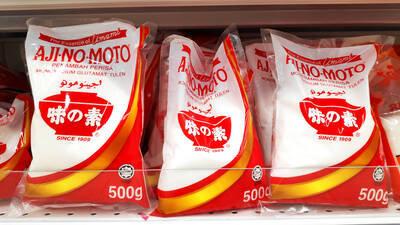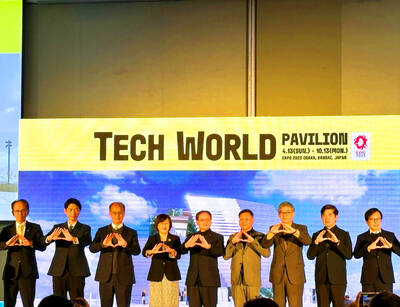In Taiwan, we students are greeted daily by the distinctive melodic chime of school bells, a familiar sound that, for many, characterizes the school experience. Surprisingly, this melody’s origin can be traced back to the quarter-hour chimes of the clock at the Palace of Westminster in London. I was astonished to learn that this tune is connected to a place so distant from us.
I recently discovered that this quintessentially British melody made its way to Taiwan via Japan. Before modern broadcasting equipment, school bells in Japan were actual bells or chimes. Following World War II, both school bells and air-raid sirens utilized bells, causing confusion and panic whenever they rang. Consequently, a hobbyist inventor in Hiroshima Prefecture created an alternative timekeeping device to replace the school bell. In 1954, he completed a clock with four metal rods that could strike four distinct pitches. These were inspired by the Westminster Chimes he had heard on BBC radio broadcasts. Little did he know that his personal preference would profoundly impact not only Japan but also Taiwan and South Korea, making the Westminster Chimes a ubiquitous sound for students across East Asia.
The presence of the Westminster Chimes in both Taiwan and Japan is rooted in historical circumstances, but its significance extends beyond that. The chimes have become an integral part of our daily lives, setting the pace of our routines and reminding us of the bonds and shared experiences shaping our education. Who would have thought such an ordinary sound could have such a fascinating history behind it?

Photo: Unsplash / 照片:Unsplash 提供
在臺灣,每天迎接我們學生的是學校鐘聲的獨特旋律,對許多人來說,這是一種熟悉的聲音,是校園體驗的特徵。令人驚訝的是,這段旋律的起源可以追溯到倫敦西敏宮時鐘的一刻鐘報時。我驚訝地發現這段旋律原來與一個距離我們如此遙遠的地方有關。
我最近發現,這段極其典型的英式旋律是透過日本傳到臺灣的。在現代廣播設備出現之前,日本的學校鐘聲是用真正的鐘或是搖鈴。第二次世界大戰後,學校鐘聲和空襲警報都使用了鈴鐘,一旦響起就會引起混亂和恐慌。因此,廣島縣的一位業餘發明家創造出了一種替代計時裝置來取代學校的鈴鐘。西元1954年,他完成了一個帶有四根金屬桿的時鐘,可以敲出四個不同的音高。這些音高的靈感是來自於他以前在BBC廣播中聽過的西敏宮鐘聲旋律。而他不知道的是,他的個人喜好不僅會深刻影響日本,還會影響臺灣和韓國,使西敏鐘聲成為對於東亞各地學生而言是無所不在的一種聲音。
西敏鐘聲在臺灣和日本的存在源於歷史情況,但其意義並不止於此。這段鐘聲已經成了我們日常生活中不可或缺的一部分,定下我們日常生活的節奏,並提醒我們塑造出我們教育樣貌的聯繫和共同體驗。誰當初會想得到,如此普通的聲音背後竟有一段如此引人入勝的歷史?
MORE INFORMATION
chime n. 鐘聲;鐘響
melodic adj. 旋律優美的
quintessentially adv. 典型地;具代表性地
siren n. 警報器;汽笛
hobbyist n. 愛好者;業餘者
Hiroshima Prefecture 廣島縣
ubiquitous adj. 無所不在的;普遍存在的
integral adj. 不可或缺的;必需的
KEY VOCABULARY
1. distinctive adj. 獨特的;與眾不同的
Ryan has a distinctive hairstyle that makes him stand out in a crowd.
萊恩有獨特的髮型,讓他在人群中顯得很醒目。
2. characterize vt. 為……的特色;描述……的特性
The culture of the city is characterized by its diversity and inclusivity.
這座城市的文化以其多元性和包容性為特色。
3. raid n. 襲擊;搜查/air raid n. 空襲
The soldiers went on a raid to destroy the enemy’s supply lines. 那群士兵們發動一場突襲,以破壞敵軍的補給線。
4. confusion n. 困惑;混淆
The teacher noticed the confusion on the student’s face and explained the concept again.
那位老師注意到學生臉上的困惑並再次解釋這個觀念。
5. rod n. 棒子;桿子
The curtain rod keeps falling down because it’s not properly fixed. 那根窗簾桿因為沒被固定好,一直掉下來。
6. profoundly adv. 深刻地;極度地
The teacher’s words profoundly influenced Robbie’s decision to pursue a career in science.
那位老師的話深深地影響羅比要去從事科學事業的決定。
7. impact vt. 影響;衝擊
The invention of the Internet has greatly impacted people’s daily lives.
網路的發明已大大地影響了人們的日常生活。
8. circumstance n. 情況;環境
Due to circumstances beyond its control, the company had to cancel several deliveries.
由於無法控制的情況,該公司不得不取消了幾次交貨。
9. pace n. 步調;速度
Wesley ate his meal at such a quick pace that his stomach started hurting.
衛斯理以如此快的速度吃飯,以至於他的肚子開始痛了起來。
學習音檔: https://magazine.english4u.net/Magdata/menu/vvppq
《空中美語》雜誌APP免費下載: https://www.english4u.net/apps/index.aspx
免費收聽當月《空中美語》雜誌課文朗讀及解析 !
文章由AMC空中美語授權使用: https://www.english4u.net

Monosodium glutamate (MSG) has been used in cooking for over a century to enhance flavor. It is often found in Chinese dishes and many other cuisines. Despite its common use, many people misunderstand the safety of MSG. The bad __1__ of MSG started in the late 1960s, when a letter to the New England Journal of Medicine described symptoms like a racing heart, weakness, and numbness after the writer ate Northern Chinese food. While no specific cause was __2__, a series of questionable studies in 1968 began to point the finger at MSG. In one such study, neurologist Herbert Schaumburg and

A: The World Expo 2025 is about to open in Osaka. Is Taiwan going to participate in the event too? B: Sure, the Taiwan External Trade Development Council (TAITRA) will launch a Taiwan pavilion named “Tech World.” A: That sounds cool, and it can showcase our national strength in technology. B: The theme is “Connecting the world to create better future lives together.” The pavilion aims to attract over one million visitors. A: I hope humans can really create better future lives through this year’s fair. A: 2025年世博會即將開幕,這次台灣也會參加嗎? B: 當然啦,外貿協會的台灣館將以「Tech World」名義參展! A: 聽起來蠻酷的,應該是想強調台灣的科技實力。 B: 策展主題則是:「連結世界,共創未來美好生活」,希望能吸引到100萬人次參訪。 A: 希望藉由這次世博會,人類真的能共創美好生活。 (By Eddy Chang, Taipei Times/台北時報張迪)

Even as he grows older, Microsoft founder Bill Gates still fondly remembers the catalytic computer code he wrote 50 years ago that opened up a new frontier in technology. Although the code that Gates printed out on a teletype machine may look crude compared to what’s powering today’s artificial intelligence platforms, it played a critical role in creating Microsoft in April 1975 — a golden anniversary that the Redmond, Washington, company celebrated on April 4. Gates, 69, set the stage for that jubilee with a blog post reminiscing on how he and his old high school friend — the late Paul Allen

The study had several issues. Small sample sizes made it hard to draw __7__ conclusions. Additionally, taking a __8__ like pure MSG on an empty stomach is likely to make a person ill in any case. Choosing individuals who already had a history of the symptoms could have created a bias because they were likely to __9__ the reactions again. When real scientific research on the effects of MSG was eventually done, many of the myths surrounding it were proven __10__. The U.S. Food and Drug Administration and other global organizations have found MSG safe to eat. Today, MSG